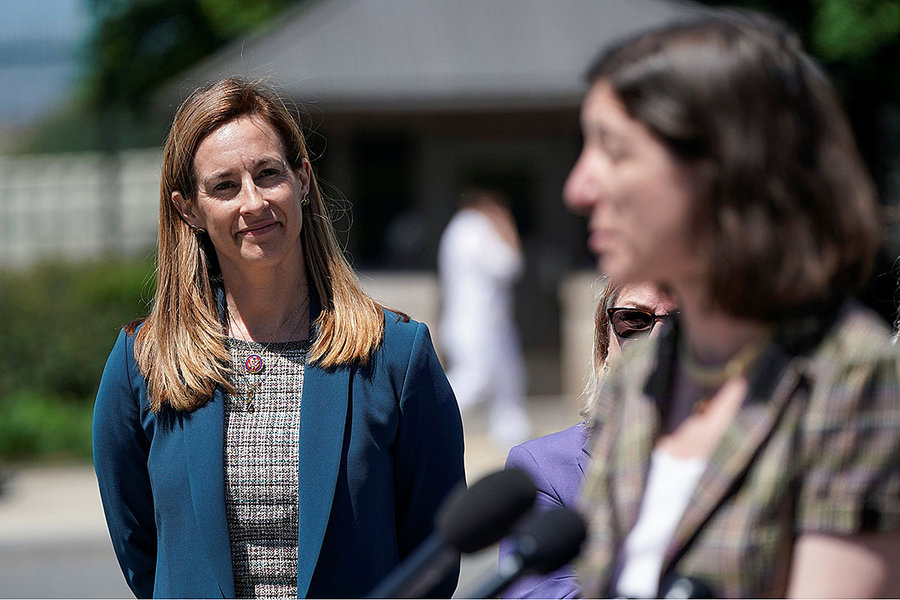
Capitol Hill’s Blue Dog coalition has a host of new members, whose demographic profiles are more reflective of today’s Democratic Party. Some say as the center has shifted left, the group’s agenda has moved as well.
When Mikie Sherrill first ran into the congressional Blue Dog coalition in 2018, she wasn’t sure it would be the place for her.
She knew the caucus focused on fiscal and national defense issues, which she – a Democrat then running for a GOP-held seat in northern New Jersey – cared deeply about. But she also knew it had been founded by a group of white Democratic congressmen, most from the South, who felt they were being “choked blue” by the party’s leftward shift. She remembered that the coalition, back in 2009, had urged changes to the Affordable Care Act that some in the party say watered down President Barack Obama’s signature bill.
“I had some pause,” Representative Sherrill says in a phone interview. “I had some concerns about the policies, about the history.”
What won her over was Stephanie Murphy, the Vietnam-born Florida lawmaker who came to Congress in 2017 and now serves as the first woman of color to co-chair the Blue Dogs. The two women connected instantly on the issues. “She was incredibly thoughtful about how to move the economy forward, creating broad coalitions, moving on infrastructure,” Representative Sherrill recalls. They also shared experiences: young kids at home, careers in public service (the Pentagon for Representative Murphy, the Navy for Representative Sherrill), and support for LGBTQ and women’s rights.
Such résumés would have been unusual, if not unimaginable, for the original Blue Dogs. Today’s coalition, however, looks a lot like the rest of the Democratic caucus: less white, less male, and less conservative. Current Blue Dogs hail from red and purple districts across the country, including the Northeast and the Pacific Northwest. And like Representative Sherrill, their newest members campaigned – and won – on bread-and-butter issues like health care and infrastructure.
Blue Dog members say they still stand by the old centrist mantra of fiscal responsibility, a strong national defense, and commonsense solutions to practical problems. But their membership today reflects how much the demographic and geographic profiles of the Democratic Party have changed – and how much the political center has shifted.










